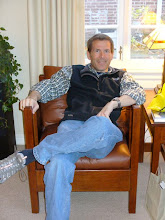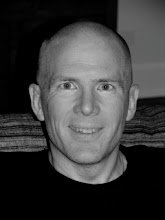My son Chase says:
“My
grandfather Ed Kimball was my soft spoken hero. He was the man I want
to be, in virtually every way: a dedicated teacher; a thoughtful
disciple; a loyal son, father, and husband; a clear writer and honest
historian. I love him, and I know he loves me.”
The
list of Dad’s attributes is long: kind, smart, dedicated, thoughtful,
honest, funny, considerate. I would like to illustrate a few, including
some for which stories tell and single words fail.
A. Dad saw three-dimensional people. He did it in writing history and biography. He did it in serving on the parole board. He did it in serving as a bishop. He did it in parenting seven quite different children. He did not categorize or label people. He saw individuals and dealt with us as individuals.
B. Behind the Clark Kentish mild-mannered demeanor, Dad thoughtfully and knowingly challenged the status quo. He did it by asking good questions. I have called him “subversive” in the kindest most affirming sense. He would have rejected the label but smiled with recognition. Dad was not didactic. He seldom preached or argued. Dad was subversive in the sense that Socratic dialogue is subversive of things as they are. He was subversive in the sense that good history is sometimes subversive of revealed religion. Dad took pleasure in asking good questions.
C. Dad would volunteer to act as scribe or secretary for faculty meetings. He explained to me that nobody wanted the job and it was a way to serve, and allowed him be more of a quiet listener than active participant. He was a modest, self-effacing man, always serving others. But the next sentence is important. He went on to say that when anyone wants to know what was discussed and decided, the minutes tell the story. By delivering the minutes in his voice, he had the last word.
D. When I was 14, Dad and I went to the Boundary Waters in northern Minnesota for a 50-mile canoe trip. We paddled across lakes, then portaged the canoe and our packs from one lake to the next. Dad was commanding in the canoe but struggled to carry a small pack over the portages. I carried a pack on my back, a second in front, and the canoe on my shoulders. With powerful arms and shoulders, but something like 1-½ legs, Dad did the almost impossible feat of paddling and walking 50 miles. That’s big. Dad took his son on a once-in-a-lifetime trip. That’s really big. But the most important part of the story is that Dad humbled himself to make the trip even knowing that his 14 year old son would have to carry the load.
No son should see his father that way. It ruins the hero myth. But every son should carry his father, at least once in his life.
E. In the context of a discussion about the nature of God and how we think about the God-Man relationship, I mentioned to my Jewish philosophy professor that one of my models was my father in that I knew about him that he loved me, without reserve, without regard to what I did or did not do. It was absolute bedrock certainty. The professor suggested that was valuable knowledge--unusual and to be treasured.
If I had one wish it would be that my children and grandchildren would enjoy that absolute assurance, that I love you, as my father loved me, as our Father and Mother love us.
F. Dad is rightly lauded for the two biographies of Spencer W. Kimball. The first one in particular (written with his nephew Andrew) broke the pattern of hagiography that characterized stories of Mormon leaders. The usual narrative is that he was a truth teller, essentially unable to do otherwise than tell it ‘warts and all.’ That is correct. But the deeper story is that he knew what he was doing--consciously, intentionally, using all the advantages at his disposal. He told me once that he felt a filial duty to write about his father, but he also recognized an opportunity to make a difference in the world of Mormon history and biography. He had unparalleled access to the life of a living Mormon Prophet. He was confident that he could persuade his father to give permission. And he knew that it would work out to everyone’s benefit because his father was a genuinely good man--not perfect, but good.




